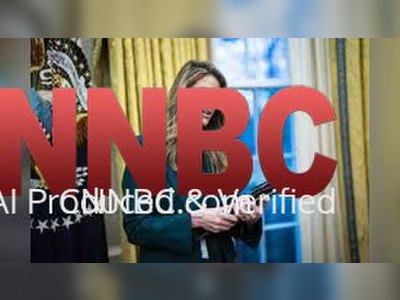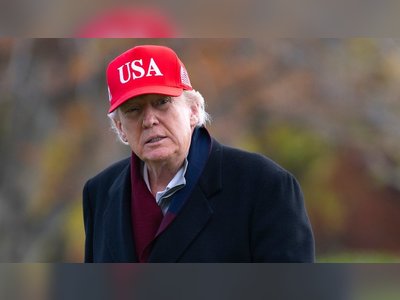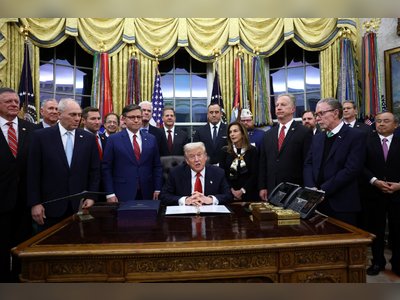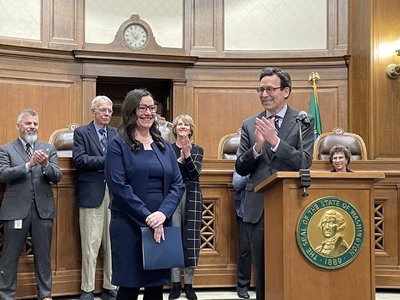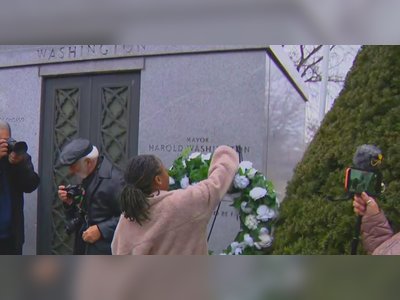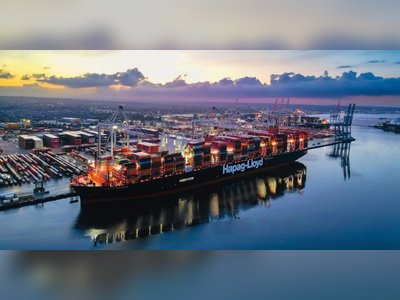Trump Hosts Saudi Crown Prince for Major Defence and Investment Agreements
President Donald Trump and Crown Prince Mohammed bin Salman announce a sweeping strategic pact, up to $1 trillion in Saudi U.S. investment and advanced arms sales
On November 18, United States President Donald Trump welcomed Saudi Arabia’s Crown Prince Mohammed bin Salman at the White House, marking a new chapter in the bilateral relationship as the two leaders unveiled a series of landmark defence, economic and technological agreements.
The meeting coincided with reports that Saudi investment pledges to the U.S. will climb to nearly one trillion dollars, up from a prior six-hundred-billion-dollar commitment.
At a formal ceremony and state dinner, the U.S. conferred “major non-NATO ally” status on Saudi Arabia, a move that will ease weapons transfers and defence industry access—among them a planned sale of advanced F-35 fighter jets.
In parallel, both nations signed a Strategic Defence Agreement, a Civil Nuclear Cooperation Joint Declaration, a Critical Minerals Framework and an Artificial Intelligence Memorandum of Understanding aimed at deepening cooperation on supply chains, energy and frontier technology.
The White House described these measures as core to its “America First” strategy, bolstering U.S. industry and jobs while strengthening regional deterrence.
During the Oval Office briefings, Trump praised the Crown Prince as “a very good friend” and defended Saudi Arabia’s human-rights record, dismissing persistent questions about the 2018 killing of journalist Jamal Khashoggi.
The Crown Prince in turn confirmed that Saudi investment plans in the U.S. would now approach one trillion dollars, and reiterated Riyadh’s willingness to join the Abraham Accords—pending a clear pathway to a Palestinian state.
In a diplomatic signal to regional allies including Israel, the administration emphasised that any F-35 sale to Saudi would preserve Israel’s qualitative military edge in the Middle East, though details remain under congressional and regulatory scrutiny.
Defence officials caution that sophisticated U.S. technology transfers to the Kingdom could face risks of diversion to China or other actors.
Business leaders were present at a U.S.–Saudi investment forum the next day, where nearly two-hundred-seventy billion dollars in agreements and memoranda of understanding were announced across infrastructure, artificial intelligence chips and capital-market partnerships.
The accords position Saudi Arabia as a direct investor in U.S. high-tech and defence sectors, while reaffirming Washington’s role as the Kingdom’s primary strategic partner.
The summit signals a closer alignment of U.S. and Saudi interests in defence, technology and regional geopolitics, even as past tensions remain.
With major arms, investment and energy deals on the table, the Trump administration has proved its readiness to anchor Saudi Arabia once again at the heart of its Middle East strategy.
The meeting coincided with reports that Saudi investment pledges to the U.S. will climb to nearly one trillion dollars, up from a prior six-hundred-billion-dollar commitment.
At a formal ceremony and state dinner, the U.S. conferred “major non-NATO ally” status on Saudi Arabia, a move that will ease weapons transfers and defence industry access—among them a planned sale of advanced F-35 fighter jets.
In parallel, both nations signed a Strategic Defence Agreement, a Civil Nuclear Cooperation Joint Declaration, a Critical Minerals Framework and an Artificial Intelligence Memorandum of Understanding aimed at deepening cooperation on supply chains, energy and frontier technology.
The White House described these measures as core to its “America First” strategy, bolstering U.S. industry and jobs while strengthening regional deterrence.
During the Oval Office briefings, Trump praised the Crown Prince as “a very good friend” and defended Saudi Arabia’s human-rights record, dismissing persistent questions about the 2018 killing of journalist Jamal Khashoggi.
The Crown Prince in turn confirmed that Saudi investment plans in the U.S. would now approach one trillion dollars, and reiterated Riyadh’s willingness to join the Abraham Accords—pending a clear pathway to a Palestinian state.
In a diplomatic signal to regional allies including Israel, the administration emphasised that any F-35 sale to Saudi would preserve Israel’s qualitative military edge in the Middle East, though details remain under congressional and regulatory scrutiny.
Defence officials caution that sophisticated U.S. technology transfers to the Kingdom could face risks of diversion to China or other actors.
Business leaders were present at a U.S.–Saudi investment forum the next day, where nearly two-hundred-seventy billion dollars in agreements and memoranda of understanding were announced across infrastructure, artificial intelligence chips and capital-market partnerships.
The accords position Saudi Arabia as a direct investor in U.S. high-tech and defence sectors, while reaffirming Washington’s role as the Kingdom’s primary strategic partner.
The summit signals a closer alignment of U.S. and Saudi interests in defence, technology and regional geopolitics, even as past tensions remain.
With major arms, investment and energy deals on the table, the Trump administration has proved its readiness to anchor Saudi Arabia once again at the heart of its Middle East strategy.

